The Association for Computer Aided Design in Architecture (ACADIA) has honored UO Associate Professor Nancy Yen-wen Cheng with the 2014 ACADIA Society Award of Excellence, which was presented at the group’s annual conference in October in Los Angeles.
As part of the award, at the conference Cheng will present her research on “Shaping Light with Folding Surfaces,” a project for creating sun-shading screens. Cheng teaches ARCH 423 “Design Development Media,” which investigates how folding design responds to sunlight. Cheng says the folding of both light and shadow is a vehicle for learning tools of design.
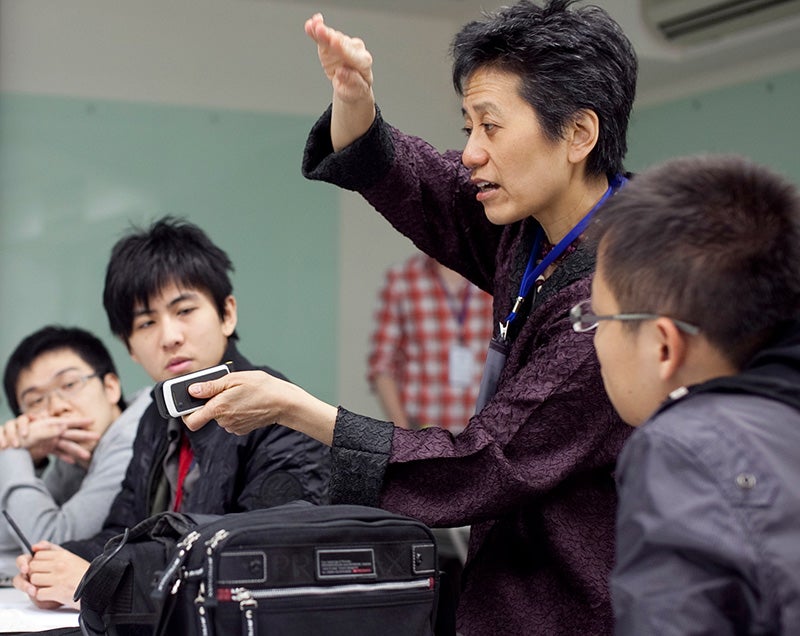
Above: Cheng teaches a workshop in 2011 at Tatung University in Taiwan.
“I’m looking at how folding surfaces can mediate heat and light,” she says. “Computers enlarge the scope of what we can do so much. I see the power of computing, and that’s why I teach it. It enriches our world and helps us make better decisions. I believe that computers help us see more, do more, and think more deeply.”
On Tuesday, November 18, Cheng will present a public talk on her Shaping Light research at 7 p.m. in the Empirical Theater at the Oregon Museum of Science and Industry Science Pub (1945 SE Water Avenue) in Portland.
Cheng was chosen for the ACADIA award for helping improve the organization as a volunteer-run program, helping connect ACADIA to allied organizations both internationally and domestically.
“The committee recognized that she [Cheng] laid the foundation for the next generation of ACADIA leadership, which in hindsight, we as a board of Directors realize that it did make a big difference in the long run,” says Gregory Luhan, ACADIA board member and chair for the awards committee.
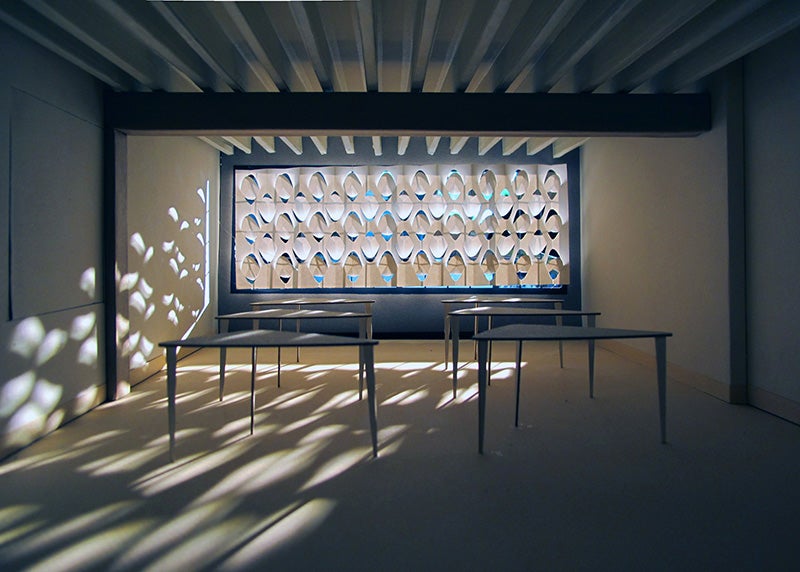
Above: At the annual ACADIA conference, Cheng will present her research on “Shaping Light with Folding Surfaces,” a project for creating sun-shading screens. Cheng will have a public talk on her Shaping Light research at 5:30 p.m. on Monday, November 10, in Lawrence Hall Room 206 on campus, as well as on Tuesday, November 18, at 7 p.m. in the Empirical Theater at the Oregon Museum of Science and Industry Science Pub (1945 SE Water Avenue) in Portland.
Cheng was recruited as ACADIA’s outreach officer in 1995 and served until 1999, when she served as chair on ACADIA’s steering committee. She served two two-year terms as ACADIA vice president, in 2007-2009 and 2011-2013. From 2009 to 2011, she also was ACADIA president.
“It’s a great group,” says Cheng. “It’s full of people who are dedicated to discovering new ways to design and helping students see potential for the future. That’s why I was doing it.”
ACADIA is an international organization of design researchers and professionals committed to researching and improving architectural design techniques with digital tools.
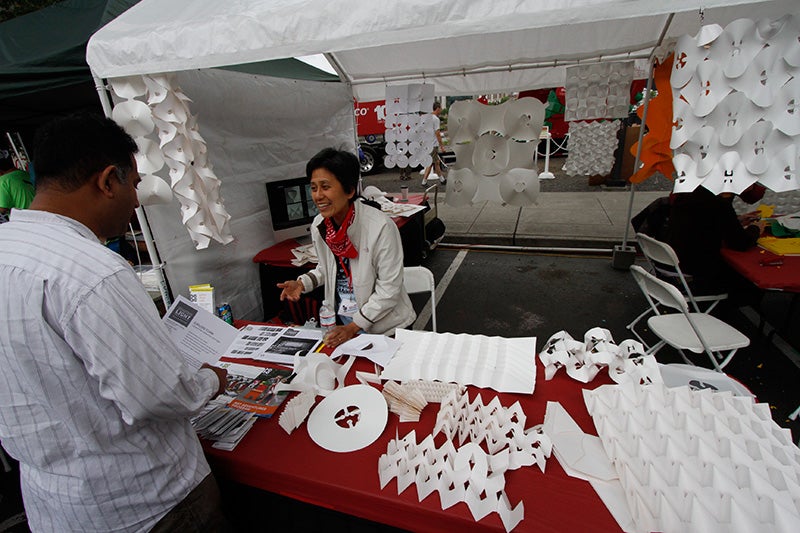
Above: Cheng presents the folded sheet material for her “Shaping Light with Folding Surfaces” research at the Oregon Museum of Science and Industry Mini-maker Faire in Portland in September 2013.
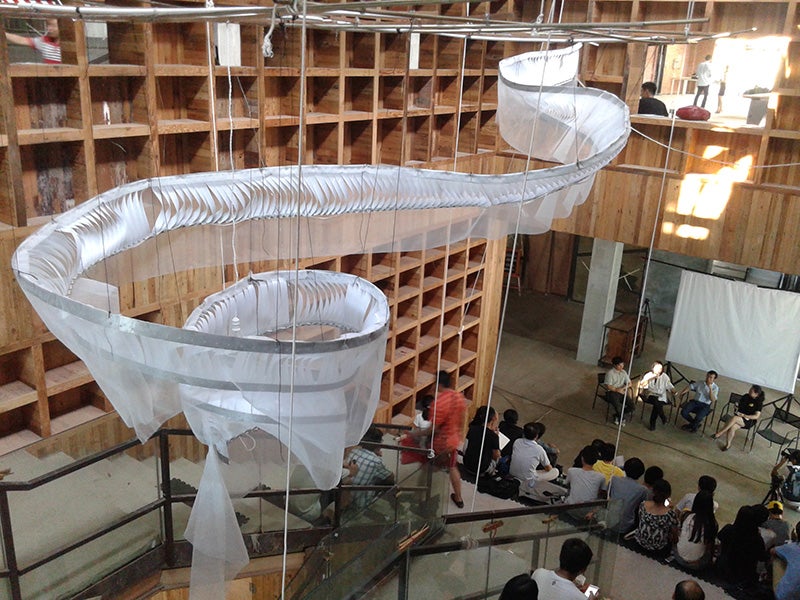
Above: “I’m looking at how folding surfaces can mediate heat and light,” Cheng says.
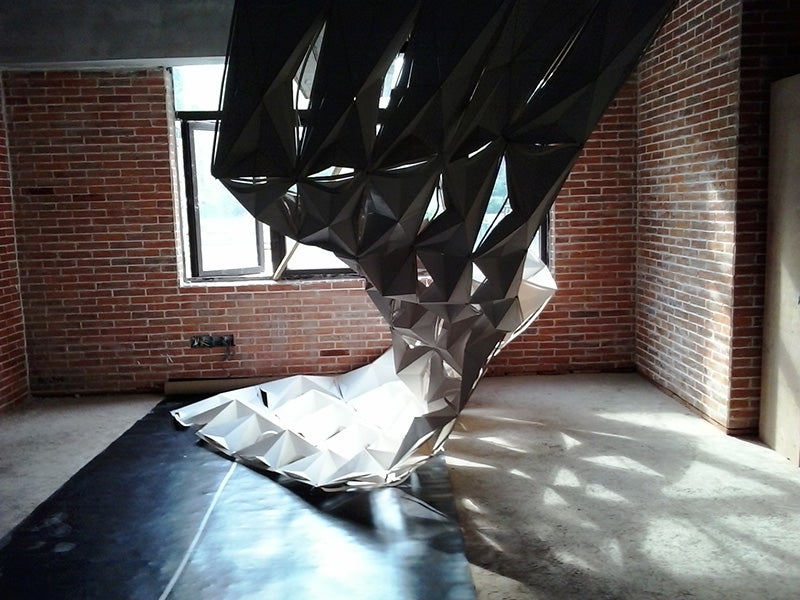
Above: Folds in the material create self-shading and internal reflections that influence interior lighting and thermal comfort. Pinches and pleats in the material shield heat and reduce glare while providing visual interest with the moving sun.
